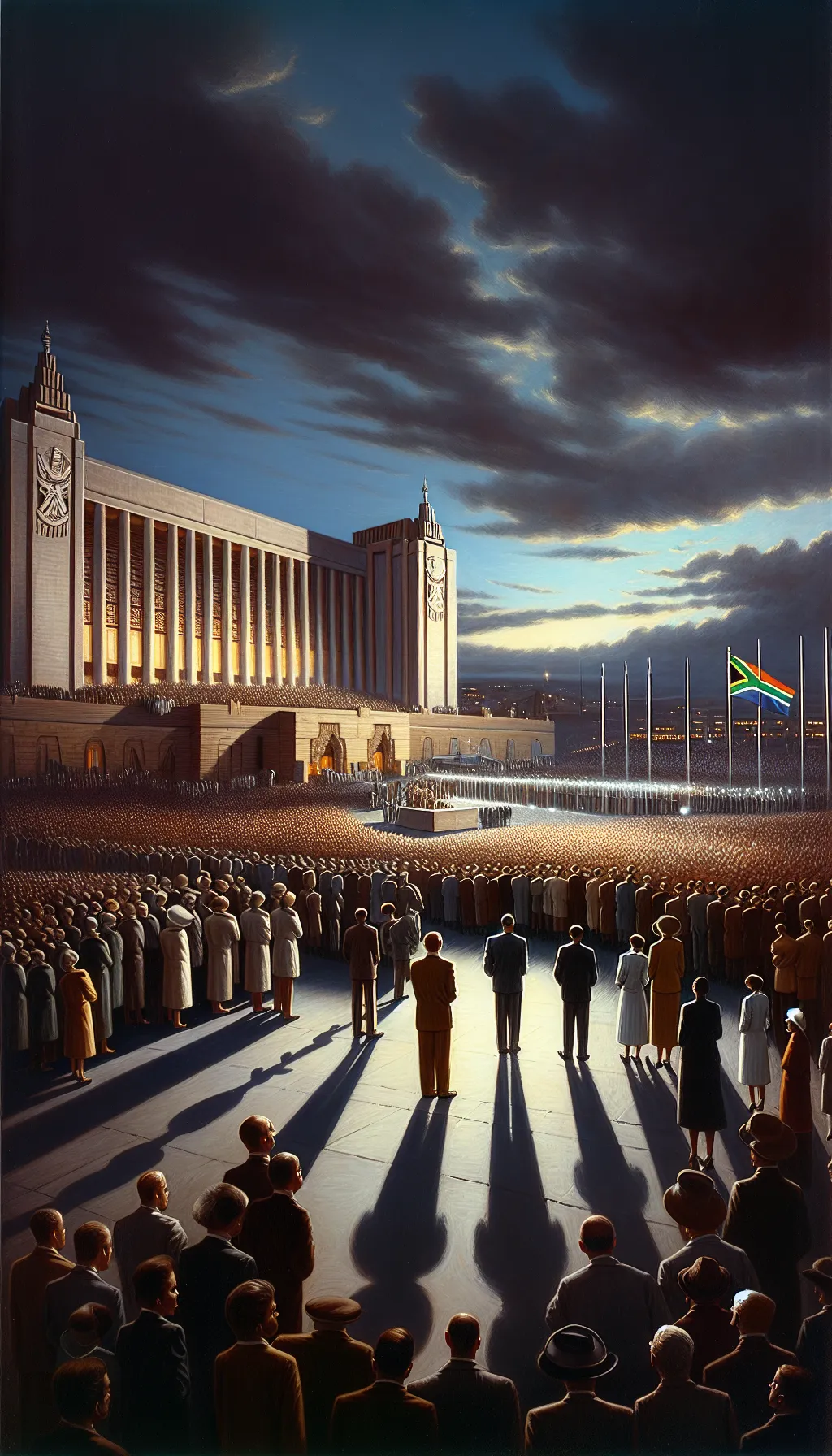South Africa – The Dawn of a New Era: South Africa's Republican Transition in 1961
TLDR;
- Event: On May 31, 1961, South Africa transitioned from the Union of South Africa to the Republic of South Africa, withdrawing from the British Commonwealth due to apartheid policies.
- Political Context: The move was led by the National Party under Prime Minister Hendrik Verwoerd, aiming to entrench apartheid and reduce British influence, decided by a white-only referendum with 52% in favor.
- International Reaction: The transition was met with international condemnation focused on apartheid, leading to South Africa’s pressured exit from the Commonwealth.
- Legacy: The 1961 republic declaration symbolized Afrikaner nationalism but the dismantling of apartheid is more linked to later events like the Soweto Uprising and F.W. de Klerk’s reforms.
–
Story
The air was thick with anticipation on May 31st, 1961, as South Africa stood on the brink of a monumental transformation. The world watched as the Union of South Africa, a member of the British Commonwealth, prepared to emerge as the Republic of South Africa. This was not just a change in name, but a profound shift in identity and governance, though it remained a Commonwealth member until March 15, 1961, when it withdrew following criticism over apartheid policies.

The decision to become a republic was driven by a complex interplay of political and social factors. The ruling National Party, under Prime Minister Hendrik Verwoerd, sought to consolidate its power and further entrench its policy of apartheid—a system of institutionalized racial segregation and discrimination. The move to a republic was seen as a step towards greater autonomy and a rejection of British influence, which was increasingly critical of apartheid. This followed a 1960 referendum where only white voters, supporting the National Party, decided the issue with 52% in favor, while Black South Africans, the majority, had no say.
As the clock struck midnight, the Union Jack was lowered, and the 1928 Union flag was hoisted, remaining unchanged until the adoption of the current multicolored ‘rainbow flag’ in 1994. The transition was complete, but it was not without controversy. The Commonwealth exit was a diplomatic defeat, as South Africa was pressured to leave rather than face expulsion, and was met with international condemnation directed at apartheid, not the republican transition itself. Internally, many English-speaking white South Africans opposed leaving the Commonwealth, but the National Party had enough support to proceed.
The establishment of the Republic of South Africa entrenched apartheid, but the direct ‘turning point’ toward dismantling apartheid is more associated with events like the Soweto Uprising (1976), international sanctions in the 1980s, and F.W. de Klerk’s reforms (1990-1994). The 1961 transition itself was more symbolic for Afrikaner nationalism. The legacy of that day in 1961 is a reminder of the complex journey towards freedom and equality that South Africa continues to navigate.
–
| Would a different decision in 1961 have altered South Africa’s path towards apartheid? |